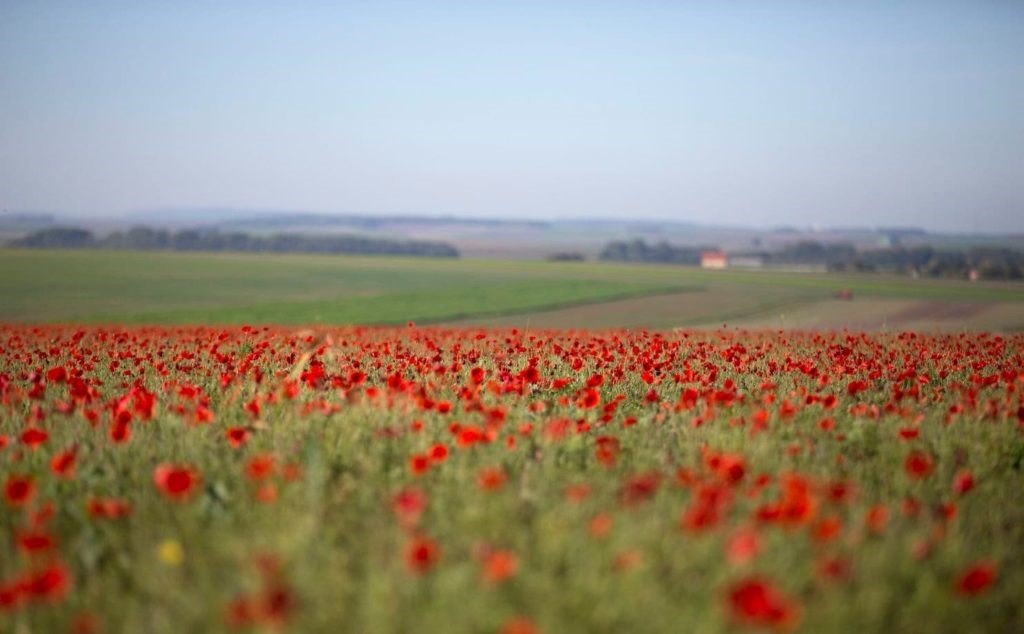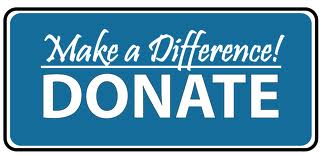Today, we celebrate the 245th birthday of the Marines: The Few, the Proud! And tomorrow, we honor all who have served, in all branches of our military forces.
In 1775, the Continental Congress also founded the Continental Army and Navy, which later morphed into the U.S. Army and Navy. The Coast Guard was established initially in 1790 under the Department of the Treasury and through a variety of transitions is now under the Department of Homeland Security.
I was privileged to serve in the U.S. Air Force, which initially was in the Army Signal Corps and then the U.S. Army Air Corps during World Wars I and II before it became a separate service in 1947. And last year, the U.S. Space Force, championed by President Trump, was formed within the Air Force, and it is now beginning to lay out the organization to be responsible for the nation’s military activities in space.
Hopefully, it will not require another world war to persuade the powers that be that the Space Force should also become a separate service. But I digress; my main point today is to reflect on Veterans Day and all veterans who have served in this nation’s unform.
First, recall that the poppy is a symbol of Veterans Day. Wearing paper poppies originated to remember the cost of World War I that was supposed to end wars — President Woodrow Wilson’s failed aspiration. Though this custom has waned in the United States, it remains strong in Britain, and in national ceremonies that recall the armistice that ended World War I in 1918. More than 40 million paper poppies are distributed by the Royal British Legion each year, and all the country’s leaders, including Queen Elizabeth, usually wear them.
Along the Western Front between 1914 and 1918, the fixed nature of entrenched warfare led to mass destruction on every level. At its most intense, artillery batteries could lay down 10 shells per second, flattening villages and towns, and creating a wasteland of mud and splintered trees in the rolling farmland, forests and broad river valleys. The shelling unearthed untold millions of dormant, buried poppy seeds, which began to germinate, grow and bloom.
Poppies are shown in full bloom in a field near Sommepy-Tahure, France. (Virginia Mayo/AP)
The corn poppy is a pesky weed, a sweet, delicate garden flower and, for over a century, the emblem of the human cost of war. After one of his comrades was killed, the Canadian field surgeon John McCrae penned the enduring poem linking the corn poppy to the slaughter of industrialized warfare. “In Flanders fields the poppies blow/Between the crosses, row on row.”
In Flanders Field
John McCrae, 1872 – 1918
In Flanders fields the poppies blow
Between the crosses, row on row,
That mark our place, and in the sky,
The larks, still bravely singing, fly,
Scarce heard amid the guns below.
We are the dead; short days ago
We lived, felt dawn, saw sunset glow,
Loved and were loved, and now we lie
In Flanders fields.
Take up our quarrel with the foe!
To you from failing hands we throw
The torch; be yours to hold it high!
If ye break faith with us who die
We shall not sleep, though poppies grow
In Flanders fields.
During tomorrow’s holiday, we should remember those who have served — and in many cases who paid with their very lives — to give us this great nation that is our heritage. We should rededicate ourselves to keeping America true to its heritage for our posterity. So, pause with me and remember . . . Never, let us forget!
Our November 11th annual celebration stems from the cessation of hostilities on the Western Front of World War I, which took effect at eleven o’clock in the morning — the “eleventh hour of the eleventh day of the eleventh month” of 1918. That Armistice Day was intended to mark the end of the war that President Woodrow Wilson vainly hoped would be the “war to end all wars.”
But hostilities continued in other regions, especially across the former Russian Empire and in parts of the old Ottoman Empire, until the official end came with the signing of the Treaty of Versailles on 28 June 1919. The German, Russian, Austro-Hungarian and Ottoman Empires ceased to exist; national borders were redrawn — with some independent nations restored or created and Germany’s colonies parceled out among the winners.
The Big Four (Britain, France, the United States and Italy) imposed their terms in a series of treaties. The League of Nations, formed with the aim of preventing any repetition of such a conflict, failed spectacularly with weakened states, economic depression, renewed European nationalism, and the rise of German Nazism.
Inattention of the Western Powers to these festering conditions and others in the Pacific led to World War II, a war that Churchill called “unnecessary” in the Preface to his Gathering Storm memoir of the pre-war years when Britain pursued a policy of appeasement.
Some say we are reliving similar conditions today in another “gathering storm” of global proportions … Whatever the final outcome of the recent election, we must remember that appeasement is not a winning strategy — “Peace through Strength” is.
We should have learned that lesson in the late 1970s that led to the Reagan Revolution of 1980s, which rebuilt our eroded military capabilities and initiated the Strategic Defense Initiative (SDI) that brought an end to the Cold War that followed World War II. But I fear that we have collectively forgotten that important lesson that I witnessed up close and personal.
We need again to take this factor into account as we confront today’s challenges, following another erosion of our military capabilities over the past three decades while we engaged in expensive wars in the Middle East, now requiring us again to play “catch-up” with “peer adversaries” like Russia and especially the largest emerging global economic power, China, in a “new world disorder” with embedded emerging fifth generation (5G) technology that now can be employed to threaten our most important critical military and civil infrastructure.
With the results of our recent election still in dispute, I worry that we could again return to the fruits of a failed strategy of appeasement clad in generally mislabeled arms control efforts.
Lest we forget . . . Recall a bit more of the past that I also witnessed.
Though World War I was over and done before my time, I recall singing songs from that era in grade school as a farm boy during the years of World War II. For example: “The Yanks are coming . . . So prepare, say a prayer; Send the word to beware; We’ll be over, we’re coming over; And we won’t come back until it’s over, over there!”
In World War II, the next generation of Americans was doing it again!
I went every Monday evening to our County Seat with my Dad (too old for the draft) to drill with the Home Guard, because we were concerned about an invasion. There were Civil Defense preparations, Victory Gardens — even in big cities — and everyone learned to fire a weapon if needed.
(BTW, Civil Defense was then a mission of the War Department, which morphed in to the Department of Defense where it remained until the late 1970s and the formation of the Federal Emergency Management Agency (FEMA) that now is in the Department of Homeland Security. I wish it was still in the Defense Department, which ignores the mission of protecting the nation’s critical civil infrastructure — particularly to threats to the electric power grid, upon which our military operations depend.)
During World War II, I recall synthetic rubber and carrying everywhere we went equipment to patch inner tubes, a jack and a hand pump — to deal with a blowout on any trip from home. Everything was rationed, and my mother sewed shirts from flour sacks for me to wear to school. We listened to radio reports on the war and followed the events on crumpled maps.
We began every school day with Bible reading, a prayer and the Pledge of Allegiance to the American Flag — long before my high school years and the latter days of Korean War when President Eisenhower signed into law that “Under God” be inserted into its terms. We didn’t need that reminder of our founding — because our grade school teachers already had instilled that history in us. But it was welcomed. During Chapel once a week, we sang the Star Spangled Banner and stood proudly as Americans.
I remember the Vets who returned — cousins in the Army, Navy and Air Force. I spit-shined one cousin’s Navy issue shoes to wear with my dress uniform in my Clemson cadet years and in my wedding — and if they bury me with my shoes on, I want to wear them in my grave. I remember a Marine Vet from our neighborhood who fought on Iwo Jima — and for the rest of his life had nightmares from the experience.
None of these folks talked much about their experiences. They well deserved to be called the “Greatest Generation.”
Lest we forget. Our entire society owes them, big time.
Perhaps they gave us too much, and life has been too easy for those of us who benefited from their efforts.
Those years were prior to the advent of the “political correctness” that dominates our lives today — even for our maturing (in age) young people, many of whom seem oblivious of their heritage. Those who can remember should pass that heritage to our young, for the benefit of those who will follow them.
They are not getting it from today’s education system — and many of our elected leaders and even some Justices of the Supreme Court seem to forget their sworn duty to uphold the Constitution.
I think we lost our way in the late 1960s with the Vietnam era and riots on college campuses. The disciples of radicals of that era appear to be in charge of our destiny today.
My wife and I worked with young people in our church during those years and tried to make a difference — and did with some. But alas our efforts, and the efforts of many others, regrettably were too little, too late.
The ebb and flow of subsequent events included the malaise of the late 1970s, a great reawakening during the Reagan Revolution and the end of the Cold War which had occupied the focus of so much of my adult life.
Some thought these welcome events heralded the “End of History” with a triumph for democracy as Francis Fukuyama wrote in 1992. So far, that has not worked out so well.
For example, notwithstanding President Trump’s welcome and rewarding efforts in the Middle East (that included defeating ISIS in Iraq, bringing many of our troops home, ending the terrible Iran deal, moving our Embassy to Jerusalem and encouraging first time alliances between Israel and several of its Arab neighbors), jihadi elements still create problems (including the persecution of Christians and Jews) around the world.
Anyway, many tens of thousands of Vets have paid dearly to defend our American way. Tomorrow, we honor their efforts, while weighing the wisdom of those who have sent them on their task. Even so, we should never forget the following poem credited to Charles M. Province, a veteran of the U.S. Army and sole Founder and President of The George S. Patton, Jr. Historical Society.
It Is The Soldier
It is the Soldier, not the minister
Who has given us freedom of religion.
It is the Soldier, not the reporter
Who has given us freedom of the press.
It is the Soldier, not the poet
Who has given us freedom of speech.
It is the Soldier, not the campus organizer
Who has given us freedom to protest.
It is the Soldier, not the lawyer
Who has given us the right to a fair trial.
It is the Soldier, not the politician
Who has given us the right to vote.
It is the Soldier who salutes the flag,
Who serves beneath the flag,
And whose coffin is draped by the flag,
Who allows the protester to burn the flag.
Charles Michael Province, U.S. Army
Copyright Charles M. Province, 1970, 2005
All rights reserved.
While celebrating these heroes, each of us needs to take our own initiatives to stand for our traditional values. And we need again to seek help from the Omnipresent, Omniscient, Omnipotent Power Who has favored the American experiment since our founders sought liberty from the tyranny of their era as citizen soldiers. Hopefully, He will again respond to our earnest prayers if we turn from our wicked ways. And we take personal initiatives to remember the Serenity Prayer, attributed to American theologian Reinhold Niebuhr from the 1930s:
“God, Grant me the serenity to accept the things I cannot change; courage to change the things I can; and the wisdom, to know the difference.”
Bottom Lines.
We need to return to the ways of our fathers — for the good of our nation and those who follow us. We must remember their sacrifices that gave us this hope to be “a shining city on a hill” that Ronald Reagan saw and sought.
(BTW, that reference to “a shining city on a Hill” can be traced to an aspiration of John Winthrop, a Puritan who became first governor of the Massachusetts Bay Company, and to Matthew 5:14-16. Note: The Pilgrims arrived off the coast of Massachusetts on the Mayflower almost precisely 400 years ago to experience a devastating winter that cost many of their lives.)
We must keep that faith for the sake of those who come after us. That is how we should honor those veterans whose sacrifice we remember tomorrow.
And, like them, let’s respect our flag and our national anthem…and teach our young people why!
Stay tuned.
What can you do?
Join us in praying for our nation, and for a rebirth of the freedom sought, achieved and passed to us by those who came before us.
Help us to spread our message to the grass roots and to encourage all “powers that be” to provide for the common defense as they are sworn to do.
Begin by passing this message to your friends and suggest they visit our webpage www.highfrontier.org, for more information. Also, please encourage your sphere of influence to sign up for our weekly e-newsletter.
Encourage them to review our past email messages, posted on www.highfrontier.org, to learn about many details related to the existential man-made and natural EMP threats and how we can protect America against them. I hope you will help us with our urgently needed efforts, which I will be discussing in future messages.
Click here to make a tax deductible gift. If you prefer to mail a check, Please send it High Frontier, 20 F Street 7th Floor, Washington, DC 20001.
E-Mail Message 201110
Please click here to read Past Weekly Updates!
Please help High Frontier continue this important and timely work!
Be sure to follow us on our Social Sites!
If you found this letter via our Social Sites, and you would like to subscribe, please click below!






